Uniting Two Great Nations Through Their Shared Sacrifice: The Journey of Samuel Cook. (ENG VERSION)
In a world marked by conflict and division, there are individuals who are trying to build bridges between societies. Samuel Cook, an American entrepreneur and founder of the Borderlands Foundation, stands as a testament to this spirit by trying to build an enduring bond between the two countries he loves — The US and Ukraine.
In an exclusive interview with Cosmo Lady, Samuel shares his remarkable journey from the distant battlefield of the United States Army, to living in wartime Ukraine. His story is not just one of personal ambition, but a vision for Ukraine that threads our future history of this war together, with the compassion we will need to heal our heroes long after the guns fall silent. Join us as we delve into Samuel’s transformative journey, from his beginnings in Ukraine as a tech startup founder, to his pivotal role in shaping the narrative of Ukraine’s struggle for freedom and resilience in the face of adversity. Through his words, we gain insight into his past experiences and the mission that drives him to make a difference in the lives of Ukraine’s heroes.
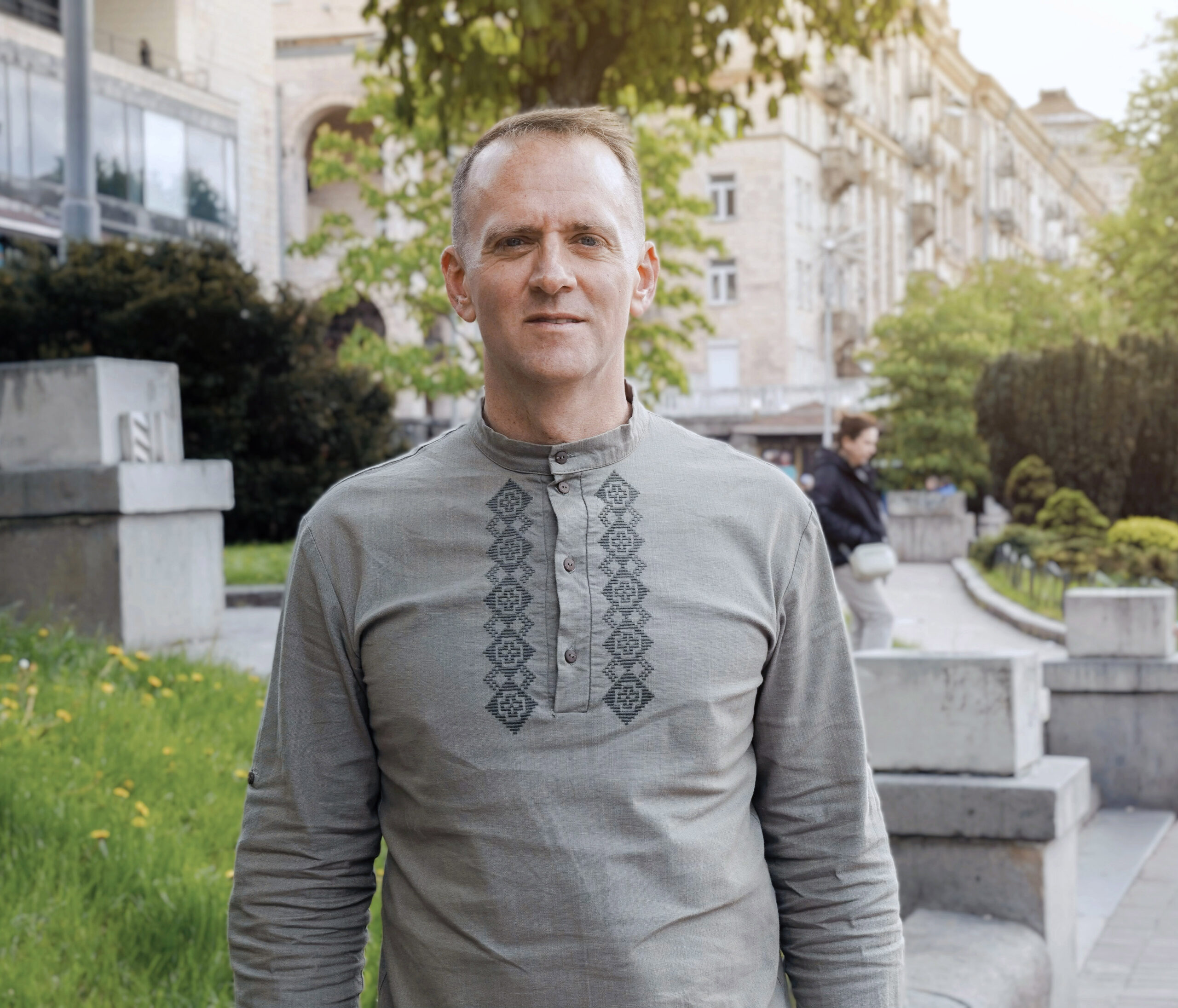
Cosmo Lady: Why did you, as an American, come to be living in Ukraine during a full-scale war?
Samuel Cook: I moved to Kyiv in the summer of 2018 to found a tech startup called SanityDesk. The summer before the full-scale invasion, I created a video series to market our software, linking the challenges faced by small business owners with Ukraine’s centuries-old fight for freedom. I drew inspiration from pivotal moments in Ukrainian history, such as Taras Shevchenko’s struggle for independence, the tragedy of the Holodomor, the devastation of the Second World War, and the resilience demonstrated during Chernobyl. These videos struck a chord with our audience, who appreciated our team’s commitment to Ukraine and my passion for its history.
The bond we formed with our customers, investors, and the wider community became crucial when the full-scale war erupted in 2022. As we helped our team evacuate to safety, it was this shared connection that rallied support from all sides. This experience reminded me that my choice to stay in Ukraine was more than just business — it was a commitment to the people and the country I had grown to love.
My fascination with Ukraine and its history began back in 2008. After completing my second tour in Iraq as a U.S. Army Cavalry Officer, I attended graduate school at NYU to study Russian history. My master’s thesis focused on Catherine the Great and the Russian Empire’s conquest of Crimea and Southern Ukraine in the late 18th century. This deeper understanding of the region’s history led to my fascination and love for Ukraine’s rich culture and heritage and led me to move here in the first place.
When I saw that the full-scale war was imminent, I moved my tech startup team to Western Ukraine for safety. The money we raised from our community to support our team exceeded our needs, so we turned the excess into a nonprofit called the Borderlands Foundation. After taking my wife to the United States to meet my family and get married, we knew we had to return to Ukraine to help the country we called home and where we wanted to raise our family. This decision to stay in Ukraine during its most challenging times is about embracing a community that has shown me so much strength and resilience.
Cosmo Lady: Why did you create the Borderlands Foundation, and what is its mission?
Samuel Cook: Like everyone in Ukraine, the full-scale invasion changed everything for me. I moved outside Ukraine a week before the war with my startup team and my fiancée in Poland. I wanted to do what I could to tell the world what was happening. On February 25th, 2022, I interviewed on Facebook a friend who had chosen to stay in Kyiv to fight. He was a former officer in the 93rd Brigade. During our interview on Facebook, he shared a heartfelt letter he had written to his wife. The emotion in his words touched many people watched the video, and their reactions made me realize I couldn’t just stand by — I had to get involved.
Before the invasion, my tech startup seemed like the most important thing in my life. I was energized by its mission and responsibility. But as soon as the war started, I lost all interest in running it. I spoke to my investors and board days after the invasion started, telling them I had to step aside to focus on the country my wife and I call home. That’s why I created the Borderlands Foundation. The name “Borderlands” reflects the English word for Ukraine, symbolizing its role as a borderland between East and West. Our mission is to ensure Ukraine’s heroes are never forgotten. We focus on documenting the history of the war and funding research and treatment for PTSD among Ukrainian veterans. The stories of bravery and sacrifice need to be told, and the heroes who fought for all of our freedom deserve support to process the trauma they’ve experienced.
Cosmo Lady: Tell us about your foundation and what it has done so far according to your mission.
Samuel Cook: The Borderlands Foundation’s mission is to make sure Ukraine’s heroes are never forgotten. We will support Ukrainian veterans by telling their stories and helping them recover from the costs that those memories have through PTSD. Let me share the story of Olena, one of the people we’ve had the privilege to help. Her husband was killed in the fighting in Eastern Ukraine, yet she became a medic on the front lines, dedicating her life to saving others. She has always dreamed of playing golf, seeing it as a way to focus on something that gives her meaning and purpose. The Borderlands Foundation is helping her achieve this dream by funding her training and sending her to our first annual U.S.-Ukraine Veteran’s Charity Golf Tournament in Washington, D.C.
At the beginning of the full scale war, our foundation began by providing refugee support in Poland, helping members of my tech startup who were laid off by the new CEO. We had raised $80,000 to help our team evacuate, which was more than we needed. This allowed them a soft landing financially and a chance to find new opportunities. In July 2022, my wife and I returned to Ukraine after visiting my family and getting married in the United States. We felt a strong pull to be part of Ukraine’s journey through these challenging times. Since our return, I decided to focus on our mission of ensuring Ukraine’s heroes are never forgotten. I began learning the history of the battle of Kyiv from local soldiers and volunteered to lead tours for visiting VIPs. I collaborated with top military analysts like Michael Kofman, Rob Lee, and John Spencer, which deepened my understanding of the battle’s significance. I also taught a course at Kyiv Mohyla University’s School of Journalism called “War & Storytelling in the Digital Age.”
In January 2023, we launched the Ukraine Civil Society Meetup in Kyiv, now with over 200 members. One of our most successful events was the first golf tournament in Ukraine since the war began, held on 6 April at Kozin Golf Club. This event allowed wounded veterans to train, play, and find camaraderie. It demonstrated the power of community and showed how golf can be a positive outlet for veterans with PTSD.
We’re now focusing on our first annual U.S.-Ukraine Veteran’s Charity Golf Tournament in Washington, D.C., on 7 June. We’ve invited and are currently training 10 wounded warriors for a week-long event involving training, conferences, networking, and shared stories. In total, through our sponsors, we are helping 25 Ukrainian veterans, active service members, and civil society volunteers get to the United States for the first time in their lives. General Petraeus is our guest of honor, and we’re thrilled to have his support. We will also host 2 days of conferences before the tournament to build bonds between the U.S. and Ukrainian defense and veterans communities.
The team leading this effort has been outstanding. I made a great decision in hiring Dmytro Terpylo, a young and energetic Ukrainian businessman, as the director of our foundation in Kyiv. He has set up an office in Kyiv and assembled a great team of ambassadors — Alesia, Kateryna, and Anna — as well as group of volunteers and contractors in Kyiv and the U.S. to organize, sell, and run the tournament. Since I don’t take a salary from the foundation, my primary role is to guide the strategy, recruit the right people, and find high-level sponsors to fund our operations and programs. The Borderlands Foundation is still in its early stages, but I couldn’t be prouder of what we’ve achieved so far. Our mission to support Ukrainian veterans and honor Ukraine’s heroes is gaining momentum, and we’re committed to making a lasting impact.
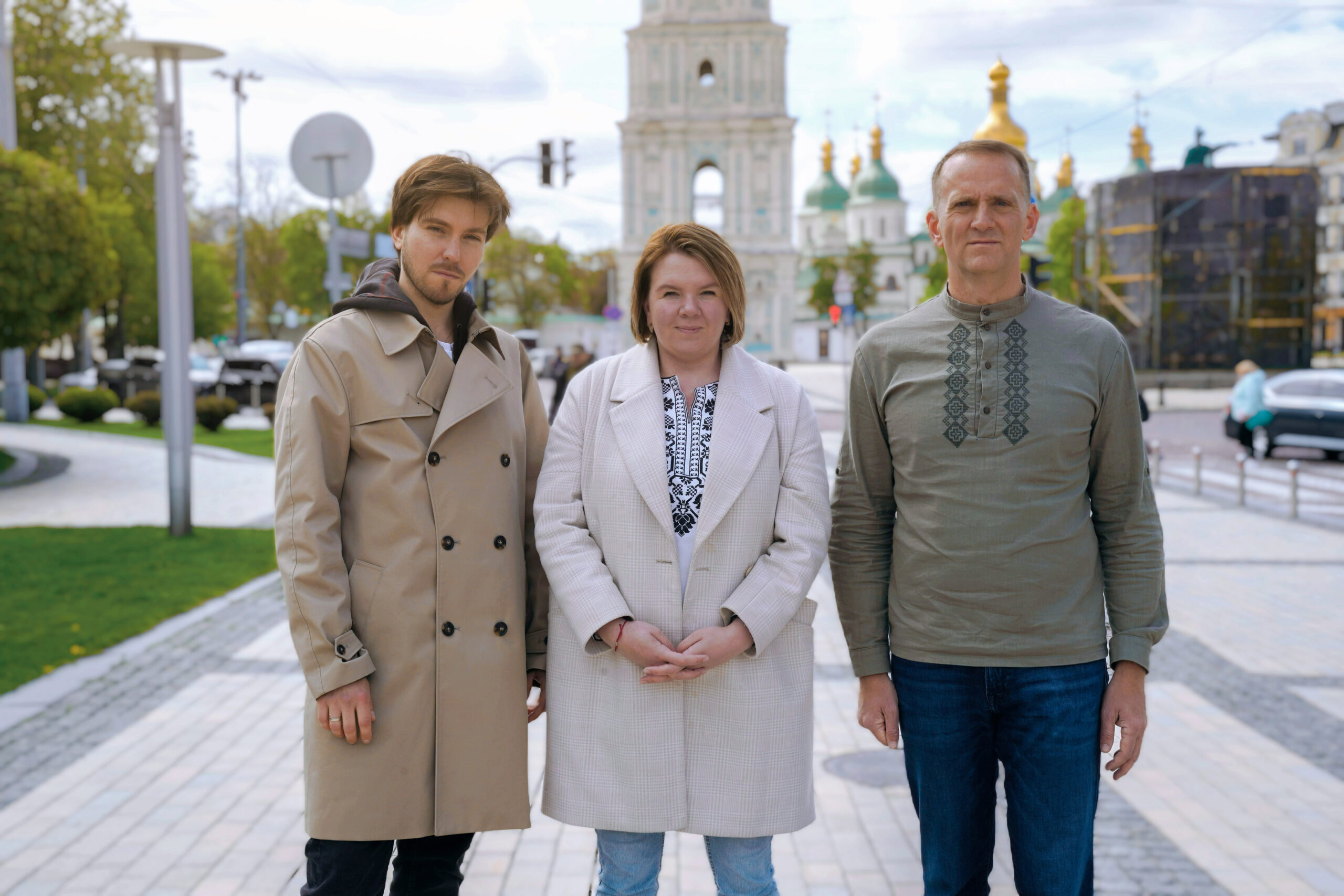
Cosmo Lady: The golf tournament in Washington, D.C. is raising money for PTSD treatment for Ukrainian war veterans. Why is this important to you?
Samuel Cook: My connection to this PTSD is deeply personal. I served as a U.S. Army Cavalry Officer and fought in and survived two combat tours in Iraq. During those years, I witnessed firsthand the devastating impact of PTSD on soldiers and friends. It’s a silent wound that can linger long after the combat ends, affecting relationships, work, and one’s sense of self. I also discovered that I had suffered from PTSD for a long time after returning from Iraq, and it took breakthrough therapy to help me process my experiences and transform them into a source of strength. When I overcame it, I vowed to use my own experience to help others find their way to healing.
Ukraine’s combat veterans are experiencing some of the most intense fighting since the Second World War. Many are focused on the immediate tasks at hand, but the emotional and psychological toll will manifest in the months and years to come. The good news is that PTSD can be treated and even lead to what’s known as Post-Traumatic Growth — a concept that suggests we can emerge from trauma with a new perspective and renewed purpose.
Our golf tournament in Washington, D.C., is designed to raise funds for research and treatment for PTSD among Ukrainian veterans. It’s a critical effort, not just to support those who are already struggling with this condition but also to prepare for the long-term impact the war will have on those who served. Veterans don’t want to be seen as victims; they want to be recognized as the heroes they are. Like it did for me, many will not recognize or want to face their own PTSD for several years to come. By funding PTSD treatment, we help them regain their sense of purpose and continue to contribute to the country they fought to defend.
This tournament is more than just a fundraiser — it’s a statement of support for those who have given so much for Ukraine and the western values we all hold dear.
With General David Petraeus as our guest of honor, we want to focus on building connections between the U.S. and Ukrainian defense and veterans communities. This will be the first time we host this event, but we plan on running it every year to foster a sense of solidarity between my two countries, providing a platform for veterans to share their stories and experiences together.
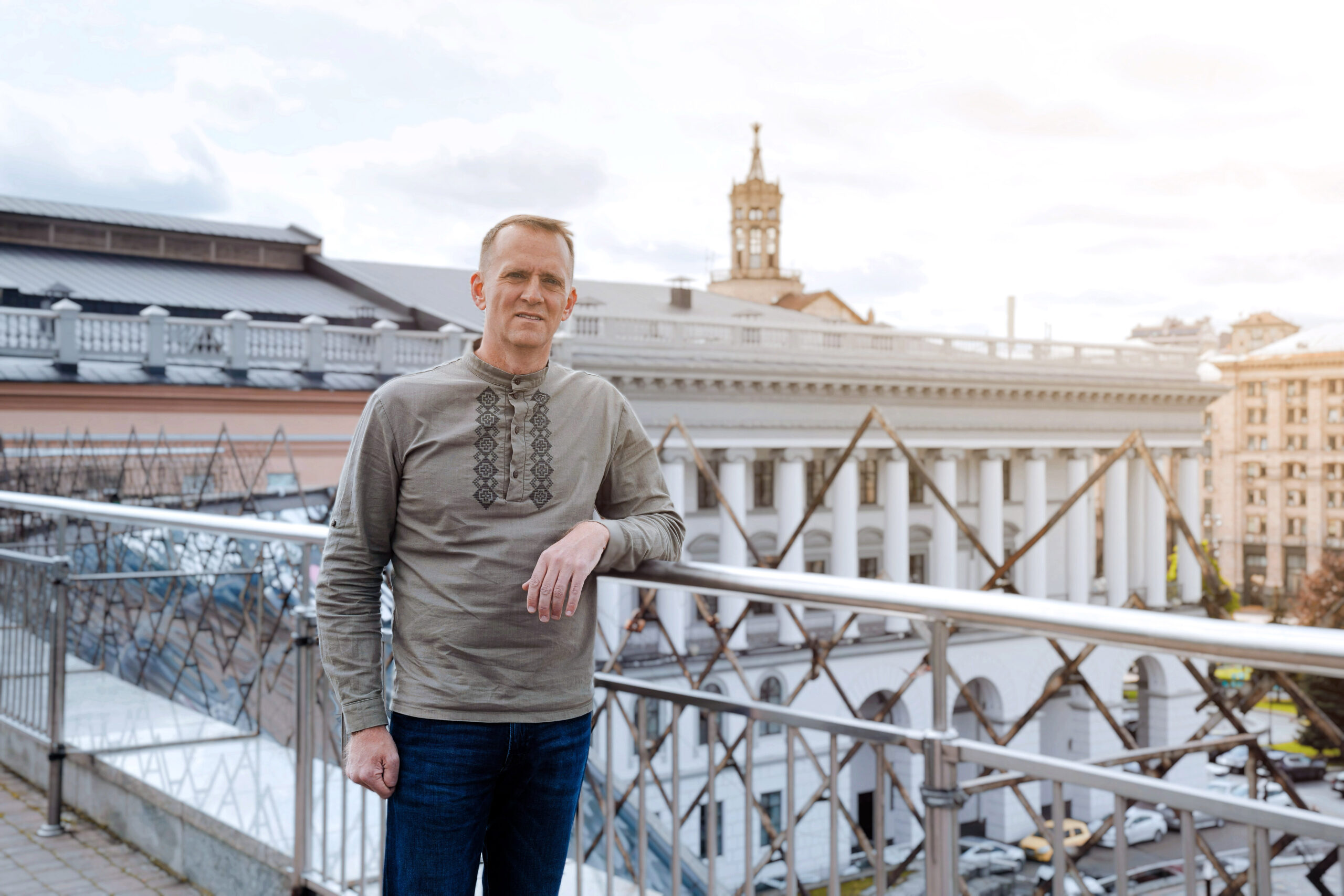
Cosmo Lady: You talked about your own experience with PTSD. Can you tell us more about how it affected you and how you overcame it?
Samuel Cook: When I came back from my two combat tours in Iraq, I didn’t realize I had PTSD. It took a diagnosis from a therapist at the Veterans Affairs (VA) several years later to make my aware of it. By that point, my life had taken a downward spiral — I was more forgetful, careless, and had trouble focusing. To cope, I drank excessively, trying to avoid the emotions and memories from combat. I also took risks in business and life, driven by survivor’s guilt and a sense of purposelessness.
The turning point for me came in 2018 when I tried guided psychedelic therapy. After two sessions, I felt like I had released years of pent-up stress and trauma. It was a profound experience that made me feel lighter and more in control of my life. This breakthrough led me to vow to help others find similar relief.
PTSD comes from various sources. There’s survivor’s guilt — wondering why you survived when others did not. There’s moral injury — grappling with the reality of taking human lives, even if it’s justified. And there’s the loss of a sense of purpose, which can lead to risky behavior and emotional turmoil. I still get calls from the 140 soldiers that I commanded in Iraq who are struggling with this. Unfortunately two of them have already passed away due to their struggles with PTSD. Many soldiers go through this, but it’s often not acknowledged or addressed properly.
Mental health is something I’m passionate about, especially after my little brother’s untimely death due to a mental health medication error. He was prescribed two drugs that should not have been taken together, and it cost him his life. The American approach to mental health, which often relies heavily on continued, long-term medication, is flawed. Good psychiatrists will tell you that medication should be used cautiously, as an interim measure to enable other treatments. Even if Ukraine wanted to follow the American model, it can’t afford the cost of putting every veteran with PTSD on long-term drug regimens.
The Borderlands Foundation is dedicated to supporting Ukrainian veterans with PTSD in ways that don’t rely solely on medication. Our upcoming golf tournament in Washington, D.C., is designed to raise funds for research and treatment. It’s critical not just for those who are already struggling with PTSD but also for those who might face it in the future. Veterans don’t want to be seen as victims; they want to be recognized as heroes. By funding treatment, we help them regain their sense of purpose and continue to contribute to the country they fought to defend.
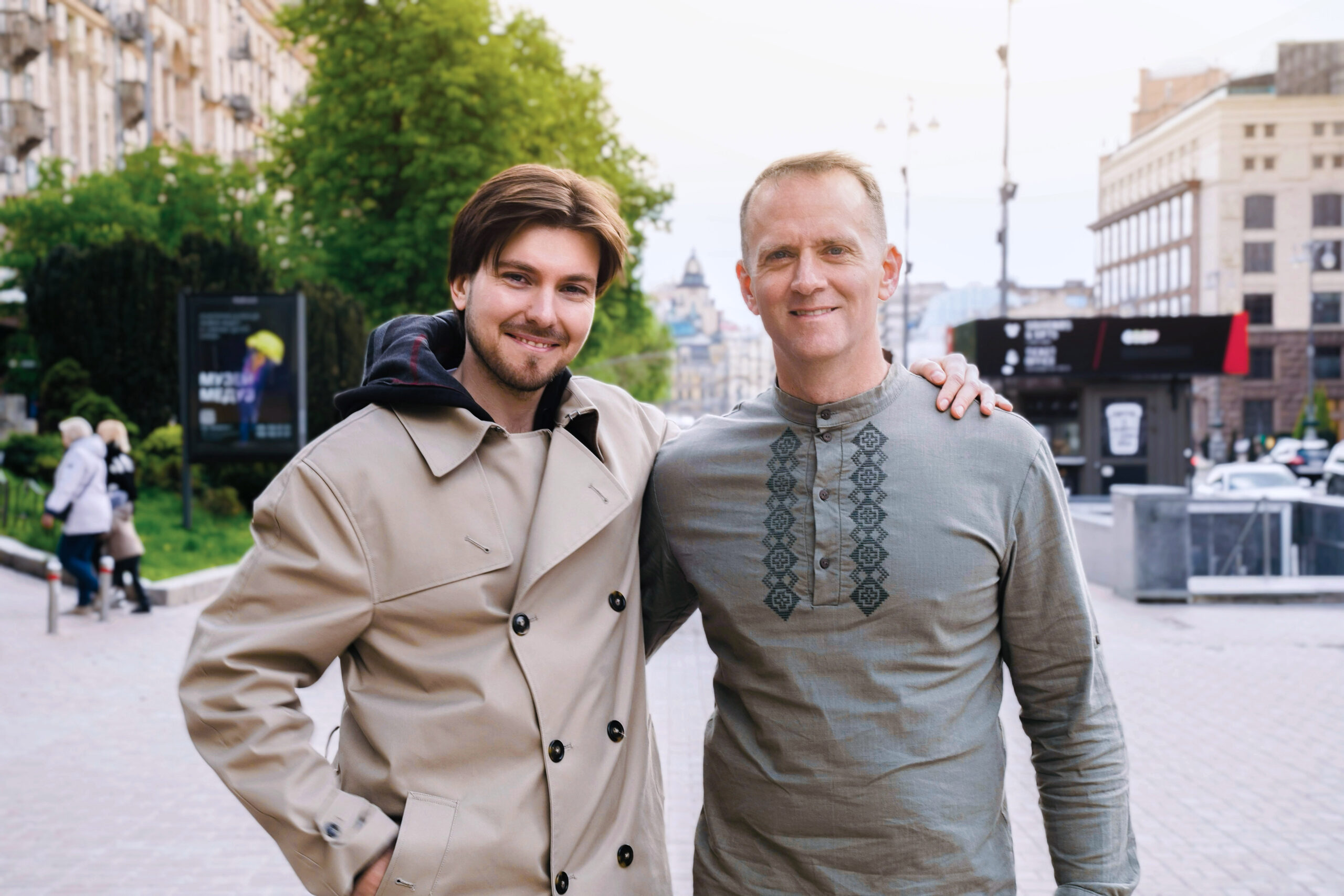
Cosmo Lady: What is your vision for how to treat Ukraine’s veterans who have and will have PTSD after their service?
Samuel Cook: In the United States, there’s a growing movement among veterans’ groups to fund research and treatment for PTSD with psychedelic-assisted therapy. This is because the traditional treatment methods haven’t always been effective, and psychedelics like MDMA are showing remarkable results in clinical trials. The American Food and Drug Administration has designated MDMA as a breakthrough therapy based on these trials, which suggest that PTSD can be significantly improved with as few as three sessions under the guidance of a trained therapist. The power of psychedelics lies in their ability to open the mind and help people process traumatic experiences to reframe them in empowering instead of debilitating ways for your life.
Ukraine has a unique opportunity to take advantage of this emerging approach. Given the severe and urgent need for effective PTSD treatment, combined with the goodwill from U.S. veterans’ groups, Ukraine could become a leader in this field. If Ukraine passed legislation to legalize large-scale clinical trials for treating PTSD in veterans, it would attract funding and expertise from the U.S., providing a valuable resource for Ukrainian veterans. This approach offers the possibility of rapid progress in PTSD treatment, unlike in the U.S., where the FDA process can be slow and bureaucratic.
However, not all veterans might be ready or comfortable with psychedelic-assisted therapy, which is why the Borderlands Foundation plans to offer a variety of support programs. We’re working with former military commanders and the Veterans Civil Society in Ukraine to identify alternative programs that can help veterans find healing. One of our pilot projects, “Rehabilitation through Golf,” aims to give wounded veterans a goal-oriented, physical sport to engage in, helping them regain a sense of purpose and self-worth.
We also plan to explore other therapeutic approaches to support veterans with PTSD, recognizing that each person’s journey is unique. The key is to offer a range of options so that veterans can find the treatment that suits them best. Whether through psychedelic-assisted therapy, golf, or other programs, the goal is to help veterans process their trauma and rebuild their lives, embracing their roles as the heroes they truly are.
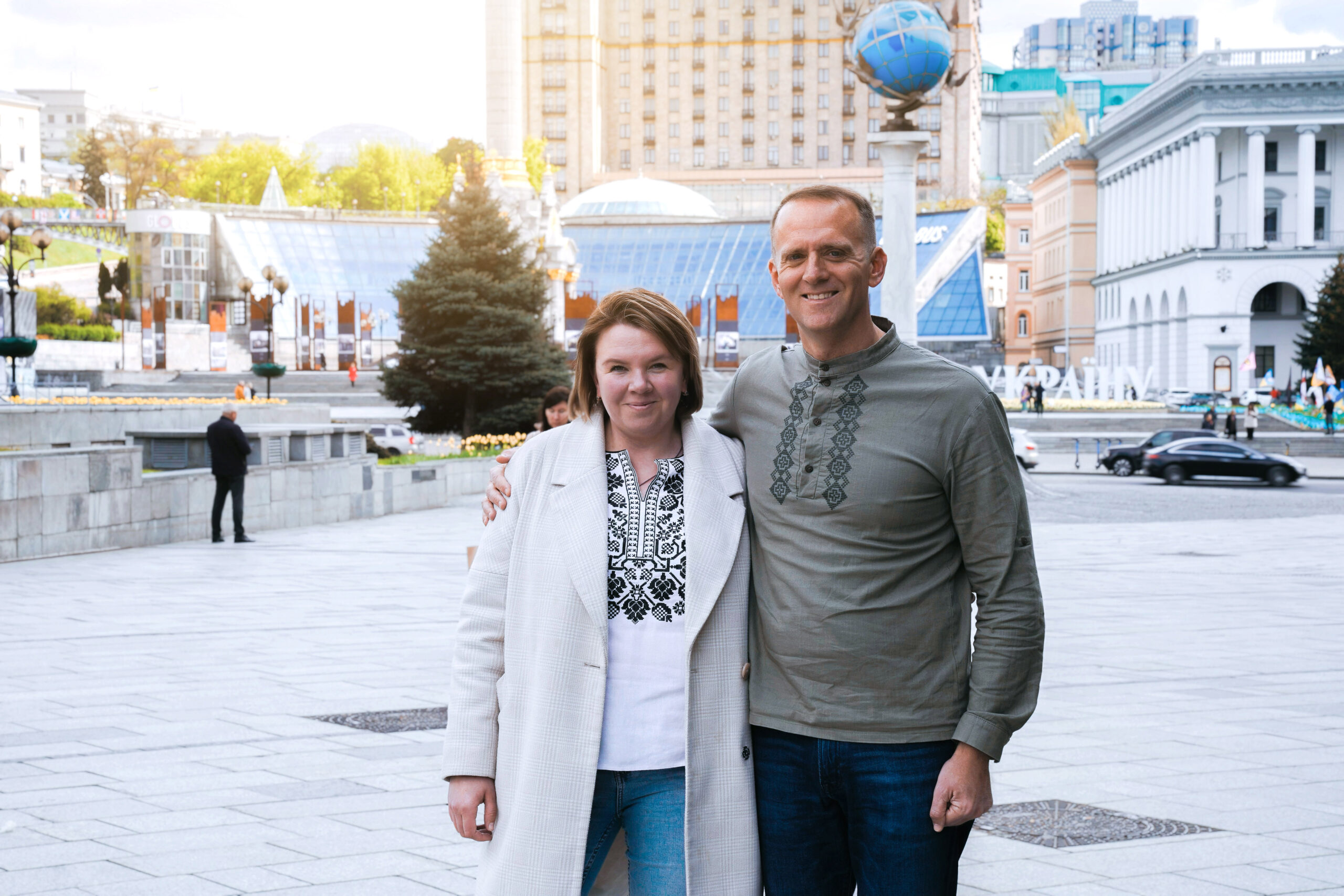
Cosmo Lady: Your foundation organized a Veteran’s Golf Tournament on 6 April near Kyiv that made the national news in Ukraine. Why did you do this?
Samuel Cook: When I returned from my two combat tours in Iraq, I struggled with memories and emotions, using alcohol and partying to numb the pain. Eventually, I turned to triathlon and other physical activities to cope. Exercise became a powerful way to manage my mental health. It gave me a sense of purpose and excitement I couldn’t find elsewhere.
However, not all wounded veterans can participate in intense sports like triathlons. During our research last year, we discovered a small but growing community of Ukrainian veterans who enjoy golf. To support these veterans and offer them a positive outlet, we decided to organize a golf tournament near Kyiv. The event allowed wounded veterans to play, compete, and build camaraderie. Despite their injuries, these veterans were out there, swinging clubs, and having a great time.
Our tournament was held at Kozin Golf Club, which did a fantastic job hosting the event. We also received support from the Ukraine Golf Association and the Azov Angels, who brought along their veteran golfers. It was inspiring to see the impact that golf had on these veterans’ lives, giving them a sense of community and purpose. We organized this tournament to create a space where veterans could connect, enjoy a shared activity, and find healing through sports.
Cosmo Lady: How did you come up with the idea for the U.S.-Ukraine Veterans Charity Golf Tournament in Washington, D.C., on 7 June with General David Petraeus? Can Ukrainians still join this event?
Samuel Cook: Yes, Ukrainians can still join, but they need to sign up before 7 May to start the security clearance process. Attendees are responsible for securing their own visas, but we can provide an invitation letter from our foundation to assist with the visa application. The event is being held at Andrews Air Force Base in Washington, D.C., a historic golf course where every U.S. president has played except one, who only played at his own courses. Our awards Gala dinner will have a talk with General David Petrarus. This will be the first annual event to bring the U.S. and Ukrainian veteran communities together. I believe the two strongest warrior communities in the free world should unite to share experiences and build lasting connections.
When I started the Borderlands Foundation, I wanted to create events that foster a sense of camaraderie while raising funds for important causes like PTSD treatment for Ukrainian veterans. Organizing a golf tournament in Washington, D.C., seemed like a natural fit. Charity events often do well when they bring people together for something they enjoy, like golf. General David Petraeus, who was my commander in Iraq and someone I have always admired, agreed to be the guest of honor. Each person attending the event will receive a free signed copy of his latest book.
The veterans in Ukraine will require significant support from private organizations to fund their recovery. The defense community in both the United States and Ukraine should play a significant role in funding these efforts because these veterans are the ones proving the worth of their weapons on the front lines. Our title sponsor is the National Association of Ukraine Defense Industry, which is bringing the top nine defense companies in Ukraine to the event.
This charity golf tournament is not just a fundraiser; it’s a way to strengthen ties between U.S. and Ukrainian veterans and defense communities. It will be an annual event, and I hope it continues long after I’m gone, providing a platform for veterans to share their stories, build networks, and raise funds for their ongoing support.
Cosmo Lady: Your mission emphasizes telling the stories of Ukraine’s heroes so that history never forgets them. Why is history so important to you and the foundation’s mission?
Samuel Cook: I understand the power of national mythologies from history to bind and inspire a country. My upbringing was split between two places: I spent the first half of my childhood in Belfast, Northern Ireland, and then moved to the United States at the age of nine. Being half English and half American, I grew up in two cultures with rich and enduring stories that shaped their national identities.
As the third of five children, I found my own way to connect with my dad through his love of history. He would share stories about Winston Churchill’s leadership during the Second World War, which sparked my lifelong passion for history. When I moved to the United States and met American Veterans, I became obsessed with learning America’s mythologies from the Civil War and World War II. My experiences as a child taught me that a nation’s history are the foundation upon which a society rises and sustains its greatness. I am proud of the fact that my two mother countries are the top supporters of Ukraine.
We are living in a world order shaped by the victors of the Second World War eighty years ago. The outcome of the war in Ukraine will determine the future of Europe and the broader world. History has always fascinated me because it reveals the patterns and lessons that can guide us toward a better future. As I look at Ukraine’s current struggles, I see an opportunity to create a national mythology that unites its people and offers valuable insights to its allies. Given these stakes, the Borderlands Foundation’s mission is to ensure Ukraine’s heroes are never forgotten. Ukraine’s history is it’s brand on the world stage. I believe the stories of bravery and sacrifice must be told to inspire future generations and maintain Ukraine’s political unity. That’s why I created the foundation — to document this critical moment in history and support the veterans who have given so much to their country.
I recently led a history tour to Irpin and Bucha for American business leaders visiting during the Kyiv Security Economic Forum by Cipher Brief. At the end of the tour, a local woman shared her personal experiences during the Russian occupation of Bucha. Her story of loss and resilience moved everyone in the group. Afterward, one of the attendees told me he planned to sell his business soon and wanted to bring his friends to Ukraine to learn more about its history. This interaction reaffirmed my belief in the power of storytelling and its capacity to build connections.
As a U.S. Army Europe Historian and someone who has led battlefield tours in Europe, I’ve seen how these stories resonate with people. After the war, many will want to visit Ukraine to learn about its history and culture. Our goal is to create tours that bring these stories to life, connecting people from around the world with Ukraine’s remarkable journey. Through these efforts, we aim to preserve history and ensure that the sacrifices made during this war are never forgotten.
